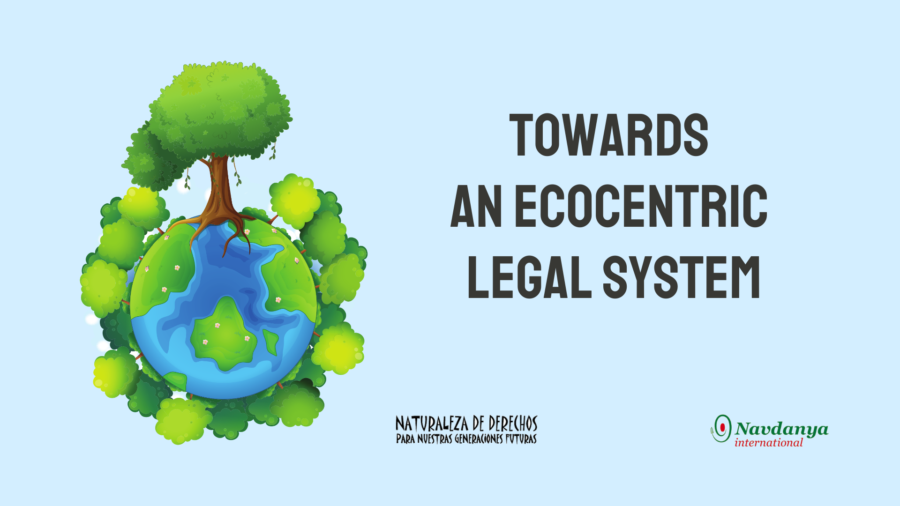
By Fernando Cabaleiro, Naturaleza De Derechos
The first stage of the development of law as an institution, is linked to the need to recognize legal values such as freedom, dignity and human autonomy, in the face of the absolute powers of the monarchies during the Middle Ages. Then during the second phase of the law, after the Second World War, the judicial value considered was the integral development of the human person, that is, the recognition of social, economic and cultural rights.
Then came the third stage, linked to collective rights, and the need to recognize legitimacy based on diffuse interests related to collective goods such as the environment. This third stage is also called the period of collective rights, which includes the rights of human beings in their consumer relations in the face of the commodification of goods and services, or so-called consumer rights.
The fourth stage of law refers to the legal values that are linked to human groups that were historically segregated or victims of serious discrimination, such as indigenous peoples, peasant movements and women.
Finally, we have the fifth stage of law. This stage, which we are going through and building, is related to the need for the law to answer to juridical values related to the injustice of considering that environmental goods in nature are inexhaustible and that human beings – who have become owners of large corporations – can dispose of them as they please, to the point of extinguishing them.
It is evident that the recognition of the environment as a right in the third stage has not worked as a mechanism for the protection of environmental goods. Therefore, there is a need to respond to the situation generated by large corporations and influential economic powers, which, imbued with greed, unlimited accumulation, and eco-abuses, have promoted the vicious cycle of more consumption, more accumulation, and more extractivism. This predatory cycle has placed the earth in this global climate crisis, and now pandemic crisis. But worst of all, once the pandemic is over, they will want to continue with the same logic.
Therefore, in the face of this process, its the law that begins to see this vicious cycle as unjust. It is a vicious cycle that causes the ruthless treatment of nature, and it is now necessary to set limits. In order to do this, it is important to unanchor the law from an anthropocentric axis, and shift to an ecocentric framework. Making this shift would be the first step.
As a second measure, coming from a critical view of the law, the law must be unanchored from being a mechanism of social control, as it historically has been and continues to be in today’s democracies. Today’s legal systems have now become functional to capitalism, as large corporations have become pressure groups that through lobbying, financing of political parties, direct financing of rulers, and their financing of public policy pushes are making judicial mechanisms work in their favor. This means corporations are making democracies serve their interests over the common good, thus legitimizing all extractivist processes through regulatory frameworks.
The recognition of nature as a subject of law is the axis of the fifth stage of the development of the law and has three sources of creation: as a constitutional reform as a consequence of a transformed political process, as in the case of Ecuador; through an act of congress – as in the case of Bolivia; or through a judicial decision, as has occurred in New Zealand, India and Colombia.
In Argentina, as neither of the first two options have occurred, we have decided to raise it before the courts, in relation to the Paraná River. The Supreme Court of Argentina has already given important notices to advance in the recognition of nature as a subject of law in three judicial cases related to water, by considering water to be an essential element for the functioning of nature as a system and its capacity for resilience. These judicial cases are proposing an ecocentric view of water, and then recognizing the principles of pro water and pro nature. That is, in case of doubt, judicial cases must be resolved in favor of nature and water.
Finally, it is quite true that human rights depend on the rights of nature. Humanity is at a turning point, if we do not save nature, it will be very difficult for humanity to save itself. Continuing to think of human rights as watertight compartments separated from the critical state of nature is like signing a blank check to the ecocide being caused by the large corporations of this capitalist system.
In this recognition civil society is placed in a unique role, as through its exercise of a participative and direct community democracy, which we see and work with in small communities. Through our work we began to understand and value as a legacy, the cosmovision of life and nature of the native peoples, who identify themselves as the guardian of the goods of nature, bearing in mind the rights of future generations. This is a very worthy role we are part of, which has assumed a revolutionary praxis for the change of paradigm of the law. A transition which is already happening.
